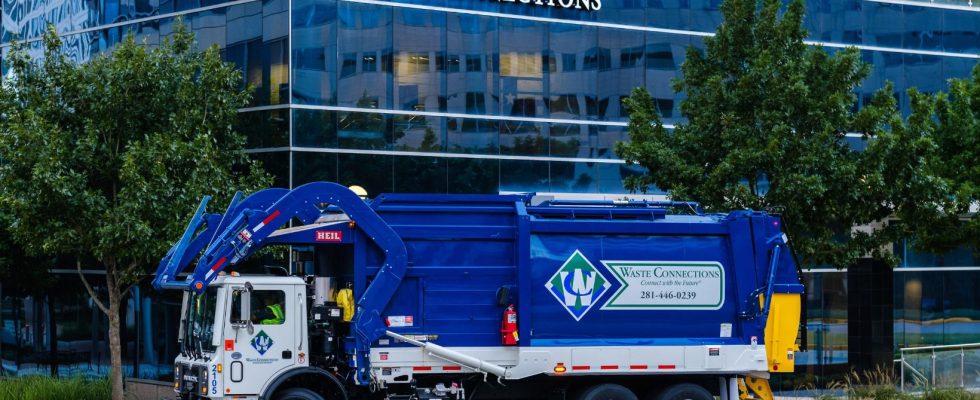Long snubbed by investors, the waste management sector has regained its reputation on the stock market. Integrated companies are at the heart of the recycling process, which figures prominently among strategies for reducing the environmental footprint of human activity.
The waste treatment industry has evolved considerably over the past two decades in the United States. Although the scandals of the 1990s and rumors of links to organized crime are still present in the minds of investors, the sector has become healthier. It is now dominated by an oligopoly of vertically integrated players, which are protected by significant regulatory barriers. In such an environment, large specialized groups thrive by relying on their power to negotiate prices and their ability to capture new markets. Waste Connections climbed the ladder to settle on the third step of the podium in North America.
Founded in 1997, the company provides solid waste collection, transfer, recycling and disposal services. This means all forms of waste ranging from household trash to industrial waste, including recyclable materials. The company also has specific skills, such as the treatment and disposal of oil residues or the intermodal movement of waste by container.
Waste Connections combines a high quality asset base, high return on invested capital and an experienced management team recognized for its efficiency. Regular and brilliantly integrated acquisitions have enabled it to consolidate its position in rural and secondary markets. This results in higher growth than its competitors and increased visibility of its results.
The company currently derives a minimal portion of its revenue from recycling. But this activity is a source of considerable growth, which relies both on demography, the strengthening of environmental regulations and the development of the reuse ecosystem. The conjunction between an expanding, predictable market and the intrinsic qualities of the company make it a relevant investment vehicle for betting on waste recovery.
And also… Two values to follow closely
Dried Environment is a recognized French specialist in technical waste. The Mayenne region has built a fine reputation thanks to its ability to treat solid, liquid or gaseous waste, both hazardous and non-hazardous. It also offers a range of complex services, in particular depollution, deconstruction or asbestos removal. Although it may be akin to a heavy industry, Séché still manages to achieve high margins and generate a flourishing free cash flow. This is a good point, especially since the file is eligible for the new so-called “green” finance programs, which should guarantee it preferential conditions in the years to come.
Casella Waste Systems, For its part, is a regional player in waste management, concentrated on the northeast coast of the United States. It stands out with higher growth than its peers and with an already large recycling division, since it generates just over a quarter of the business. It is also a group that has started to experiment with solutions for energy recovery from landfill gas.
An article from the special issue of L’Express “Investing in the ecological transition: 20 values to follow”, published on July 6
